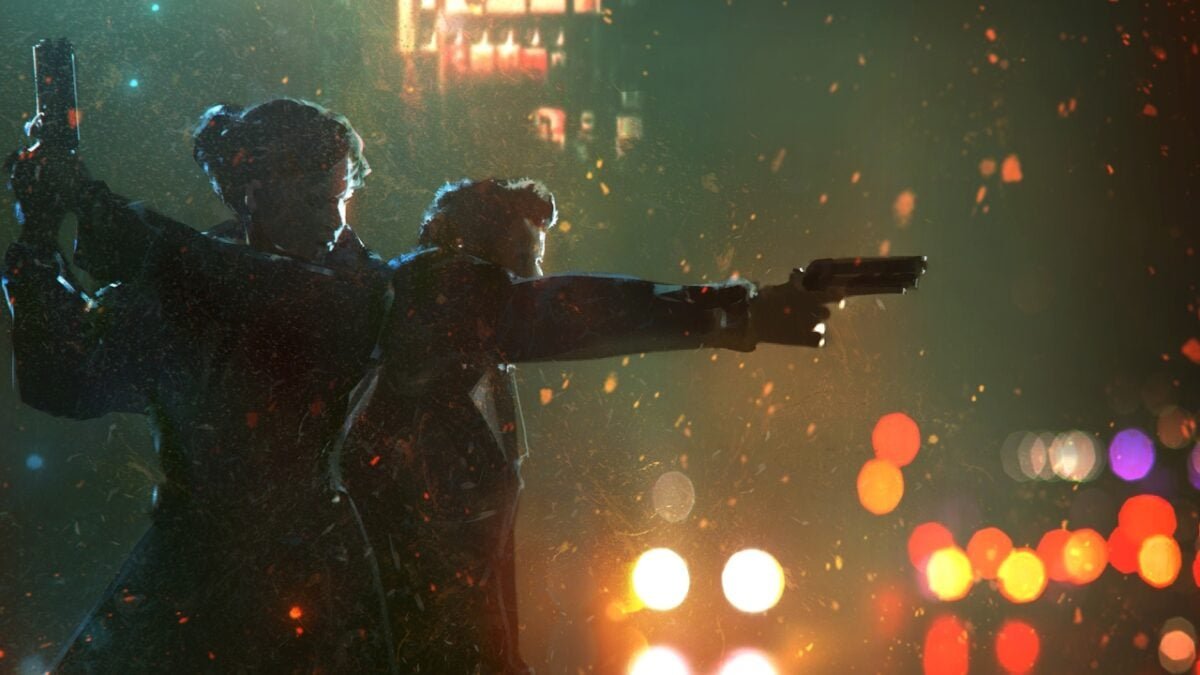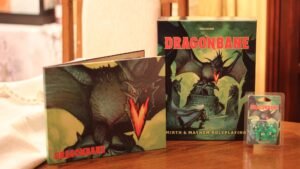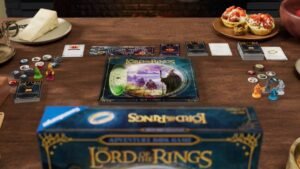Licensed tabletop-roleplaying games have to strike a tricky balance between evoking what made the source material great while being engaging to play as a game. The best example of this, in my view, is Free League Publishing’s Alien RPG, which nails the tone of the franchise while providing robust and extensive options to create your own campaign and explore a vast array of stories within that world.
Now, Free League has released its second licensed RPG based on a sci-fi film franchise: Blade Runner: The Roleplaying Game. Based on the original film and its 2017 sequel, you take on the role of Blade Runners on the neon-soaked streets of futuristic Los Angeles as you hunt down rogue Replicants and struggle with what it means to be human while solving cases. And while it captures the tone and feeling of Blade Runner, playing and running it left me unsatisfied.
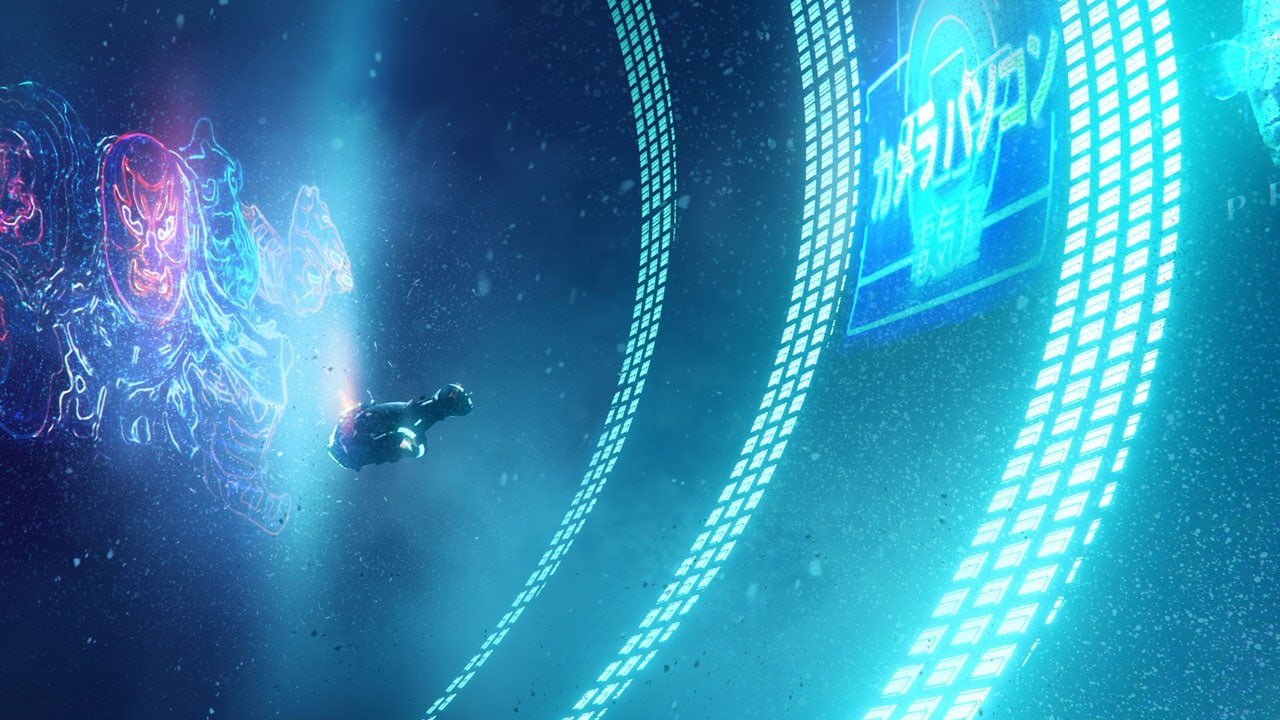
So far, Free League has released two major products for the system: a rulebook and a starter set. The core rulebook is filled with setting details and all the rules you need to create and run a campaign. The starter set, on the other hand, contains a condensed rulebook that is missing much of the lore and a starting adventure with pre-generated characters and handouts. Much like past Free League products, both of these are impeccably designed and gorgeous to look at, particularly the starter set.
Much of the core rulebook is dedicated to background details on the setting, with the game set in between the two films. Pages upon pages describe key locales, weapons, vehicles, and the course of events that has led the world to where it is today. It is back-ended by gorgeous art that is great to look at even if you don’t play it too often. To my annoyance, the section on running the game comes at the end of the book, which is a personal pet peeve of mine. Outside of that, the rulebook is structured well.
“…while it captures the tone and feeling of Blade Runner, playing and running it left me unsatisfied.”
Character creation, on the other hand, is limited. You can choose between being a human or a Replicant, pick one of several classes, and distribute stats as you see fit; and yet, you must be a Blade Runner. Your signature item, relationships, and memories are important choices to make, but the crossover between them is so great that every character mechanically feels the same.
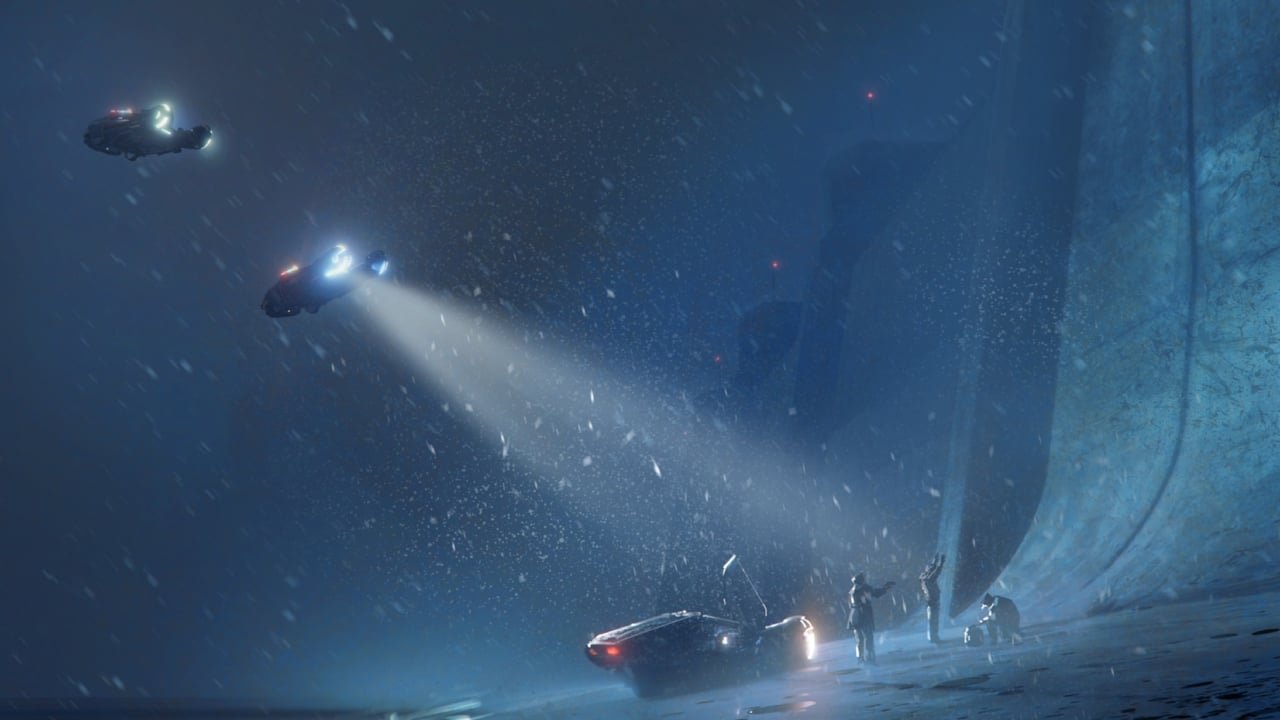
This, in turn, leads to one of Blade Runner’s most significant issues: you can only tell one type of story in this game. You can only create cops as characters. Each and every case will feature you solving mysteries as a Blade Runner, dealing with escaped Replicants, corporate corruption, questioning your humanity etc. etc. The rulebook features loads of details on the world, yet it barely expands beyond the limits of the films. You are limited in the stories that you can tell, and as a GM, that’s a significant drawback for me.
But when it comes to telling that one story, Blade Runner excels. It does a great job capturing the feeling of the films, with replicant and human characters creating different narrative consequences. For example, you have higher stats if you choose to play as a replicant, but you have to deal with the social consequences of a large number of people believing that you deserve no rights.
“Combat is fast and deadly in Blade Runner, and the rules do a great job in ensuring that you’re quickly moving through encounters without spending turn after turn trading shots with the enemy.”
Downtime sequences where you can relax, wander the streets of Los Angeles, or dream strange dreams, evoke the feeling of the films wonderfully. There are two forms of progression—promotion points and humanity points—that tie into how good of a cop you are and how good of a person you are, respectively, that require you to do a balancing act in order to grow.
Mechanically, Blade Runner: The Roleplaying Game is based on the Year Zero system that Free League has used for many of its RPGs, though there are some substantial changes. For one, dice pools aren’t limited to d6’s. Your skills and abilities are rated from D to A, with D representing a d6 and an A representing a D12. To roll, you must choose an ability and skill and roll the corresponding dice, and any die 6+ representing a success. It’s a smart change that makes Blade Runner feel distinct from the likes of Alien or Tales from the Loop.
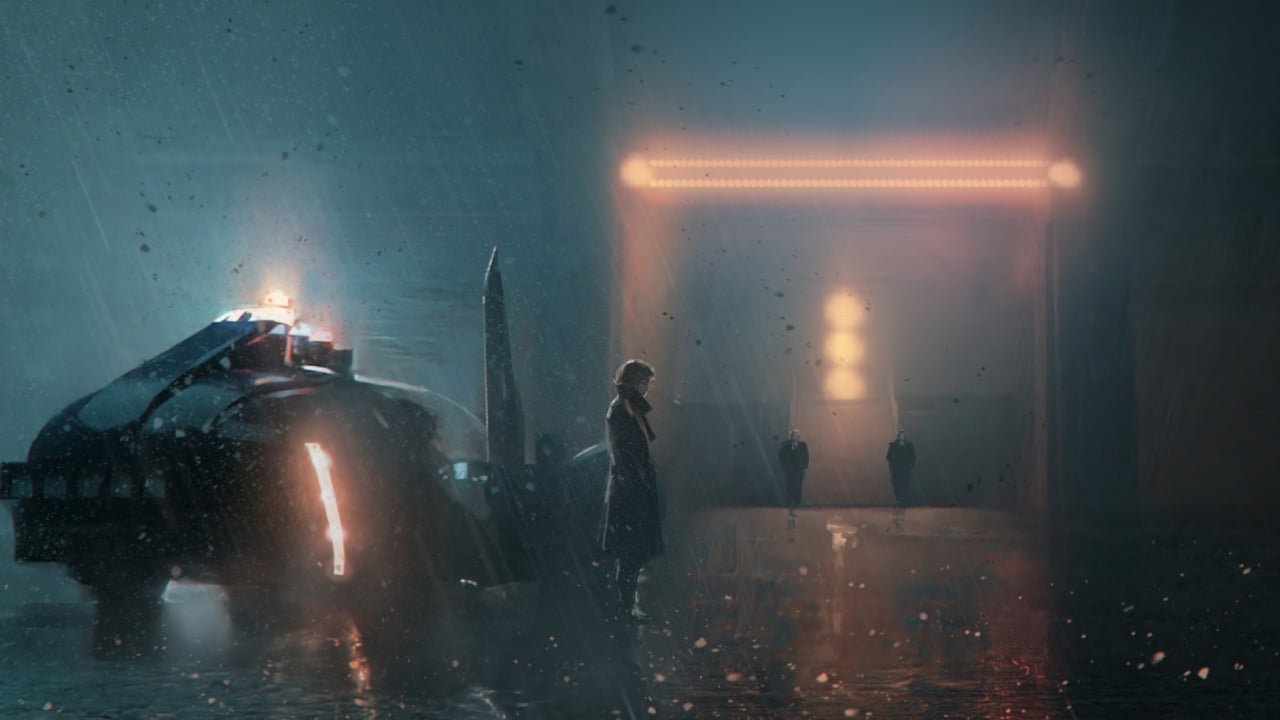
As an investigation game, Blade Runner: The Roleplaying Game thrives on players exploring multiple locations to gather clues, deduce where to go next, and ultimately solve a case. Each day is divided into one of four shifts, and a character can broadly investigate one location per shift. Party splitting is encouraged to get as many clues as possible, which strains the number of roleplaying opportunities between players, yet all evidence is automatically shared within the party.
Breaking up scenes of evidence gathering and interviewing persons of interest are combat, chase, and downtime scenes. Combat is fast and deadly in Blade Runner, and the rules do a great job in ensuring that you’re quickly moving through encounters without spending turn after turn trading shots with the enemy. Chase scenes feature random encounters that add complications to spice up running after a suspect, which is more interesting than simply having opposed dice rolls. And downtime scenes, which must be completed after every three shifts at a minimum, are sparsely written, though I believe that these would be far more interesting in a longer campaign as opposed to the one-shots I ran.
“As long as Blade Runner: The Roleplaying Game is supported with additional supplements like Electric Dreams, I can see myself coming back to spend more on the streets of Los Angeles.”
This brings me to a strange problem: the case provided in the Starter Set is so good that I don’t think I can run Blade Runner: The RPG again without purchasing additional supplements. That adventure, Electric Dreams, is a well-structured case that comes complete with a book and superb handouts. I honestly think that the handouts are among the best I’ve used in an RPG, and that’s even considering how good Free League’s ALIEN scenarios are. My players also appreciated them, and I saw them grow more engaged as they examined and turned over each new file I provided them.
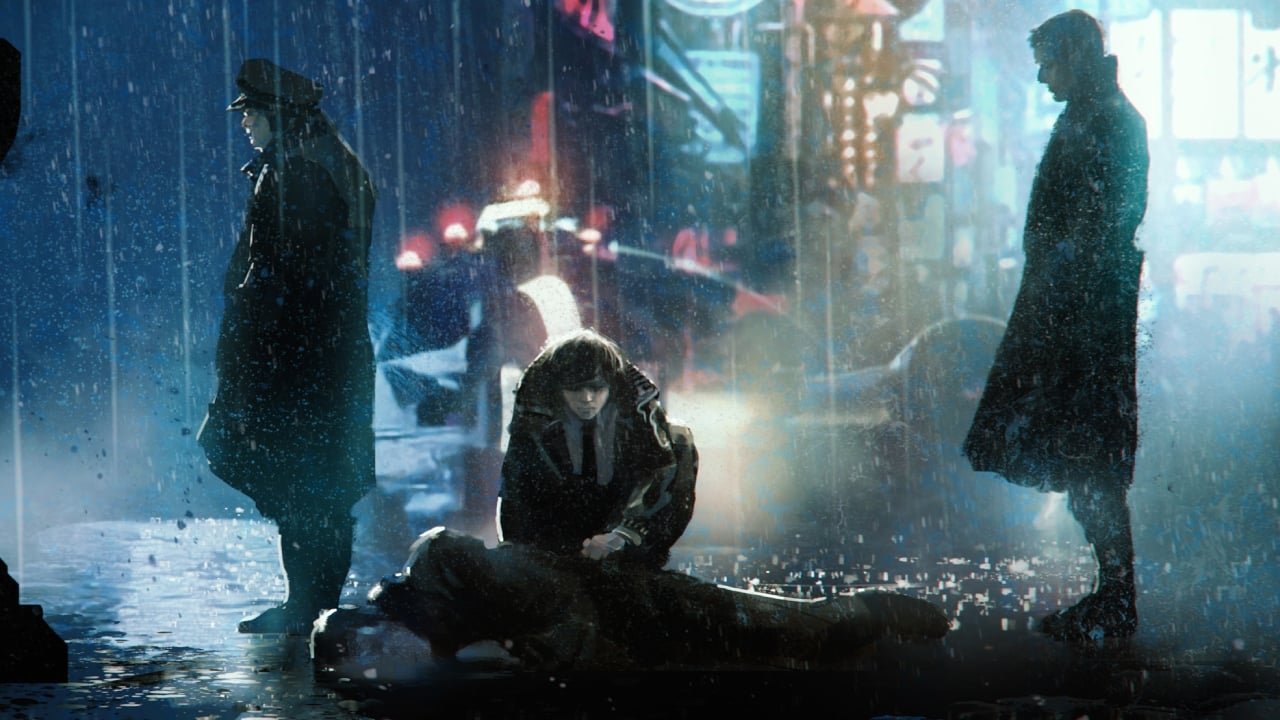
Yet as anyone who has created investigative scenarios can tell you, designing them is a lot of work. You need to ensure that there are multiple clues for every major plot point, and that’s just the simplest piece of advice. That’s not even considering the amount of effort it takes to create a handout, which is something that cannot be done in just a few hours.
For example, consider the crime scene photos that are available in Electric Dreams; my players could study them for clues, discover something, and I could use that discovery to provide a key piece of information. It would be extremely difficult to create a comparable handout on my own. And for those looking to create their own case, the core rulebook is light on details.
As long as Blade Runner: The Roleplaying Game is supported with additional supplements like Electric Dreams, I can see myself coming back to spend more on the streets of Los Angeles. It’s a well-designed RPG that is faithful to a fault to the source material. But that focus, while making it an excellent Blade Runner RPG, means that you can only play the one kind of story that can be found in the source material. It’s a lean game, for better or worse. While I appreciate what it’s going for, it’ll be some time before I return to the world of Deckard and K.
